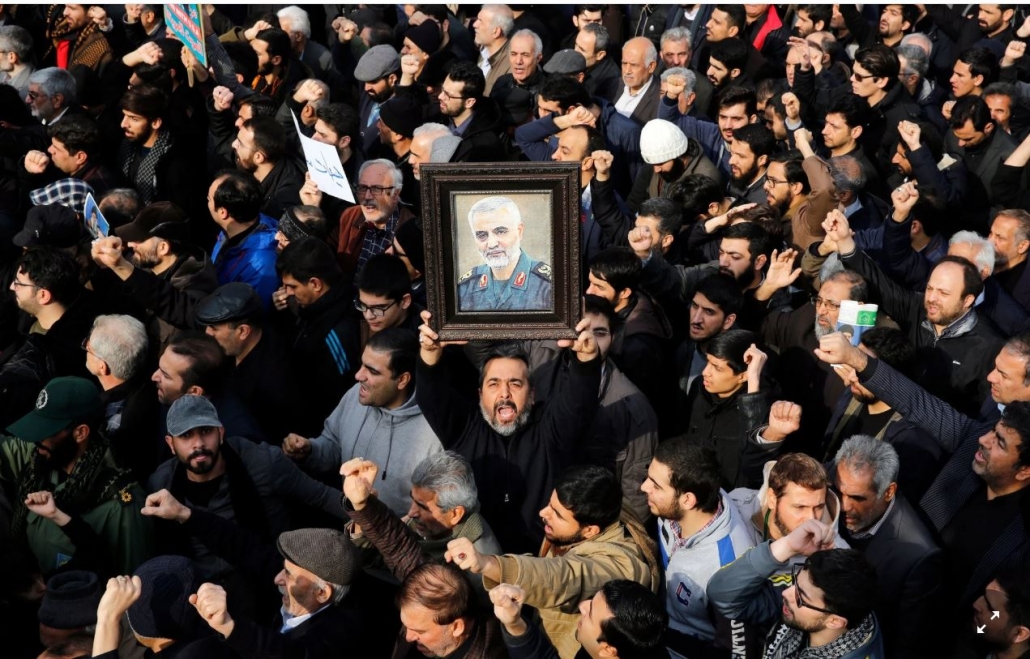With Suleimani’s Assassination, Trump Unites A Divided Iran
Jim here.
Marcy has already provided some perspective on the assassination of Qassem Suleimani, although I would double the time frame in her observations by pointing out that the Tehran embassy hostage situation began just a year before the 1980 election and provided a chance for Reagan to break many norms in his back channel negotiations during the campaign. Note that had the militias acting as Iran’s proxy been successful in storming the Baghdad embassy and taking hostages earlier this week, we would have been put in the exact same situation just a year before an election 40 years later.
What I want to concentrate on here, though, is that Trump’s desire for regime change in Iran, even with John Bolton now sitting on the sidelines, was showing at least a small chance of success without a need for outright military confrontation. Barely a month ago, Iran was rocked by internal unrest that led to massive demonstrations that were violently quashed. From the New York Times:
Iran is experiencing its deadliest political unrest since the Islamic Revolution 40 years ago, with at least 180 people killed — and possibly hundreds more — as angry protests have been smothered in a government crackdown of unbridled force.
It began two weeks ago with an abrupt increase of at least 50 percent in gasoline prices. Within 72 hours, outraged demonstrators in cities large and small were calling for an end to the Islamic Republic’s government and the downfall of its leaders.
In many places, security forces responded by opening fire on unarmed protesters, largely unemployed or low-income young men between the ages of 19 and 26, according to witness accounts and videos. In the southwest city of Mahshahr alone, witnesses and medical personnel said, Islamic Revolutionary Guards Corps members surrounded, shot and killed 40 to 100 demonstrators — mostly unarmed young men — in a marsh where they had sought refuge.
But today, after last night’s assassination, there are massive demonstrations mourning Suleimani and calling for a presumably united Iran to avenge the killing. This photo the New York Times put up from Shutterstock conveys the mood:
Iran’s Fars News Agency tweeted more from the protests:
Iranians Pour to Streets to Mourn Martyrdom of Gen. Soleimani pic.twitter.com/oYAhM8re5P
— Fars News Agency (@EnglishFars) January 3, 2020
Those protests against Iran’s government are now gone and seem very unlikely to come back. Assassinating such a popular figure has clearly united the country in a newly-stoked hatred of the United States. On the surface, then, it would seem that Trump’s dream of regime change in Iran now has to align fully with the neocon desire to do so by means of a massive invasion.
With Trump, though, linear paths of logic never apply. Perhaps I’m being too much of a Pollyanna here, but note that Trump’s M.O. in many cases is to undo a perfectly good policy, escalate the bad result, and then go back to something very akin to where we started while claiming to have broken through a situation that was previously insoluble. In that regard, let’s remember that Obama sat quietly while Mossad assassinated Iranian nuclear scientists inside Iran but then a couple of years later signed the Joint Comprehensive Plan of Action. Here’s hoping that Trump decides to pull back from war by “negotiating” a “whole new agreement” that takes us right back to the JCPOA from which he unilaterally withdrew and takes the world back from the brink of disaster.



